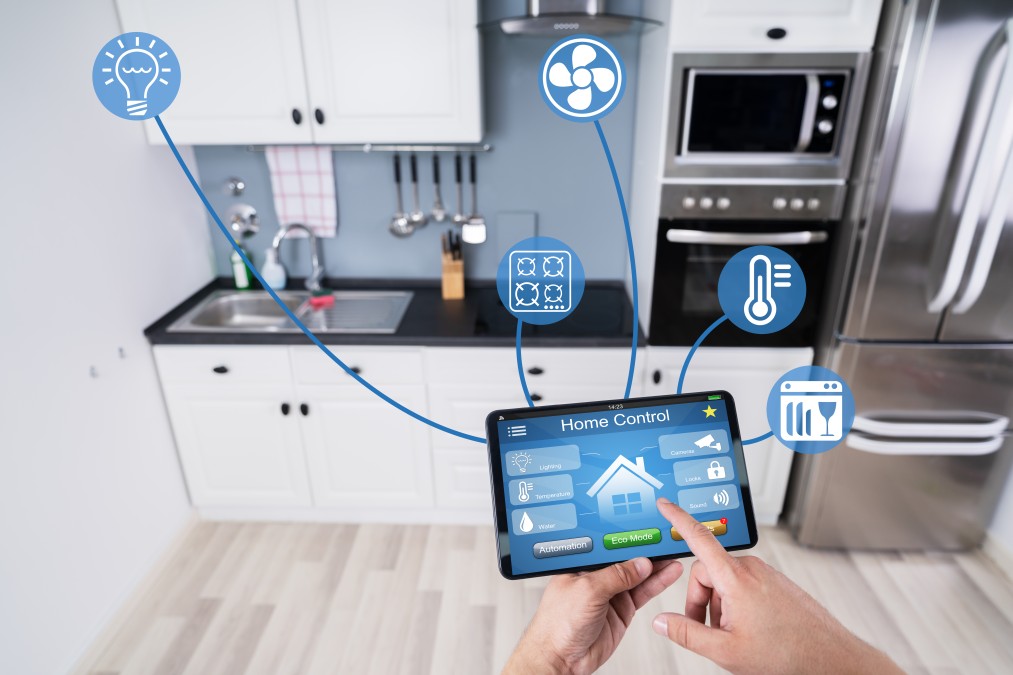In today's fast-paced world, the integration of technology into our daily lives has become an undeniable necessity. For homeowners and businesses alike, the concept of smart home garden automation is not just a buzzword but a transformative approach to managing and nurturing green spaces with ease and efficiency. Imagine a garden that waters itself, adjusts to the weather, and even notifies you about the health of your plants. This isn't a distant dream; it's the reality of today's smart gardening solutions.

What is Smart Home Garden Automation?
At its core, smart home garden automation involves using advanced technology and devices to manage and control various functions within your garden. This includes automated watering systems, climate sensors, soil monitors, and even robotic lawn mowers. These devices are interconnected, often through a centralized hub or an app, allowing users to monitor and control their garden's needs remotely. This seamless integration of technology into gardening not only saves time but also ensures optimal growth conditions for plants.
Benefits of Smart Garden Automation for Homeowners
Efficiency and Convenience
One of the most significant advantages of smart home garden automation is the efficiency it brings. Automated systems can handle tasks such as watering, lighting, and temperature regulation without human intervention. This means you can manage your garden from anywhere, whether at home or away on vacation. For instance, automated watering systems can adjust based on real-time weather data, ensuring your plants receive the right amount of water, thus conserving water and reducing utility bills. For more on how to conserve water in your garden, check out this article on smart irrigation.
Optimal Plant Health
Smart gardening systems come equipped with sensors that monitor soil moisture, nutrient levels, and even sun exposure. By analyzing this data, these systems can provide recommendations or automatically adjust settings to ensure plants thrive. This data-driven approach takes the guesswork out of gardening, making it easier for both amateur and experienced gardeners to maintain healthy plants. For more insights on connected gardening devices, explore this guide.
Business Perspectives on Smart Garden Automation
Cost-Effective Solutions
For businesses, especially those in the hospitality and landscaping industries, smart home garden automation offers significant cost savings. By automating routine tasks, businesses can reduce labor costs and enhance productivity. Moreover, smart systems can predict maintenance needs, minimizing unforeseen expenses and ensuring the landscape always looks its best.
Sustainability and Eco-Friendly Practices
Adopting smart gardening solutions also aligns with sustainable practices, a growing concern for many businesses today. By optimizing water usage and reducing waste, companies can minimize their environmental footprint, appealing to eco-conscious customers. This approach not only enhances brand reputation but also contributes to broader environmental conservation efforts.
Implementing Smart Garden Solutions
Choosing the Right Technology
When considering smart home garden automation, it's essential to choose the right technology that suits your needs and budget. Homeowners might focus on simple solutions like smart sprinklers and plant monitors, while businesses might invest in comprehensive systems with advanced analytics. For a detailed checklist on setting up smart home systems, visit this helpful resource.
Integration and Compatibility
An important aspect of implementing these solutions is ensuring that the devices are compatible with existing systems and can be easily integrated. Many smart gardening devices are designed to work with popular smart home platforms, making integration seamless. It's crucial to ensure that the chosen technology aligns with current systems to maximize efficiency and functionality. For more on integrating smart systems, this guide provides comprehensive insights.

FAQs
Can smart garden systems work for indoor plants?
Yes, there are specific smart systems designed for indoor plants, offering features like grow lights, humidity control, and soil monitoring. These systems ensure that indoor plants receive the optimal conditions for growth. Learn more about smart indoor plant monitors in this article.
How do smart sprinklers differ from traditional ones?
Smart sprinklers offer advanced features such as weather-based scheduling, remote control via smartphone apps, and water usage analytics, making them more efficient and eco-friendly compared to traditional sprinklers. For a detailed comparison, check out this comparison guide.
Is it expensive to switch to smart garden automation?
While the initial investment might be higher, the long-term savings on water, maintenance, and labor costs make it a cost-effective solution. Also, with many options available, homeowners and businesses can choose systems that fit their budget and needs.

